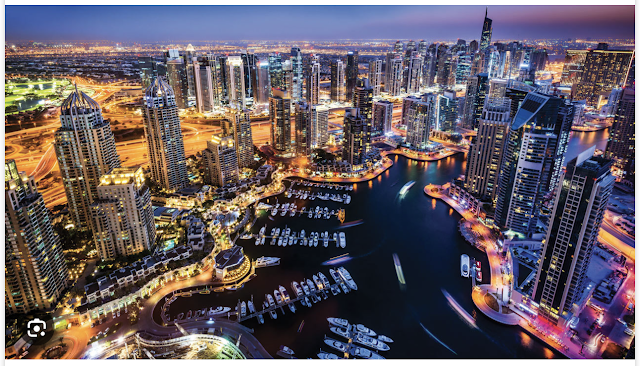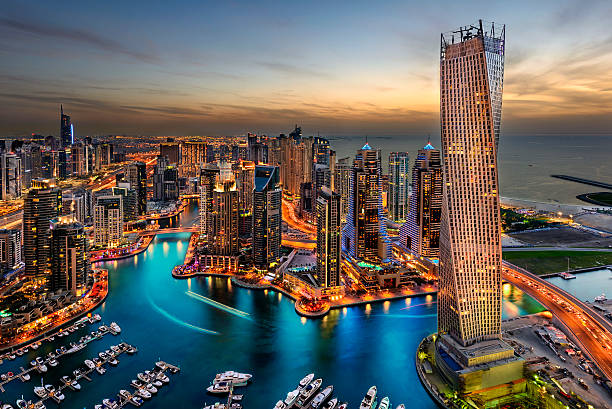What are the pros and cons of buying an apartment in Dubai, as an expat?
What are the pros and cons of buying an apartment in Dubai, as an expat?
Dubai, with its towering skyscrapers, luxurious lifestyle, and thriving economy, has become a popular destination for expatriates seeking opportunities and a high standard of living. As an expat, one of the major decisions you may face when relocating to Dubai is whether to rent or buy an apartment. In this article we will explore the pros and cons of buying an apartment in Dubai as an expat, helping you make an informed decision.
Table of Contents
- Introduction
- Pros of Buying an Apartment in Dubai
Long-term Investment
Stable Real Estate Market
Potential Rental Income
Tax Benefits
Sense of Ownership
Freedom to Customize
Community Living
Access to Amenities
Potential Capital Appreciation
Pride of Ownership
Security and Privacy - Cons of Buying an Apartment in Dubai
High Initial Costs
Market Volatility
Limited Flexibility
Additional Expenses
Responsibility for Maintenance
Reliance on Property Management
Uncertainty in Future Development
Visa Restrictions
Repatriation of Funds
Potential for Oversupply
Market Conditions and Currency Fluctuations - Conclusion
- FAQs
Can expats legally buy property in Dubai?
Is it better to buy a ready property or off-plan?
Are there any restrictions on renting out a property?
How can I finance the purchase of an apartment in Dubai?
What should I consider before buying an apartment in Dubai?
Pros of Buying an Apartment in Dubai
Long-term Investment
Buying an apartment in Dubai can be a wise long-term investment strategy. The real estate market in Dubai has shown resilience and growth over the years, offering the potential for capital appreciation. By purchasing a property, you have the opportunity to build equity and benefit from the value appreciation in the future.
Stable Real Estate Market
Dubai's real estate market has demonstrated stability and maturity, attracting investors from around the world. The government has implemented regulations to ensure transparency and safeguard investor interests, making it an attractive destination for property buyers.
Potential Rental Income
If you're not planning to live in the apartment year-round, renting it out can generate a steady stream of income. Dubai has a strong rental market, and many expats are willing to pay a premium for well-located and well-maintained properties. This can provide you with a consistent rental income, making your investment more lucrative.
Tax Benefits
One of the advantages of buying an apartment in Dubai is the absence of property taxes. Unlike many other countries, Dubai does not impose a property tax on residential properties, allowing you to save money in the long run.
Sense of Ownership
Owning a property gives you a sense of stability and belonging. Instead of moving from one rental property to another, buying an apartment in Dubai allows you to establish roots and create a home in a place that offers a multicultural environment and diverse lifestyle options.
Freedom to Customize
When you own an apartment, you have the freedom to customize and decorate it according to your preferences. You can transform the space into your dream home, adding personal touches that reflect your style and personality. From choosing the color scheme to selecting furniture and decor, owning an apartment allows you the creative freedom to create a space that truly feels like your own.
Unlike rented accommodations, where you may be limited in terms of modifications or may require landlord approval for any changes, owning an apartment gives you complete control over the design and layout. You can undertake renovations or remodeling projects to enhance the functionality or aesthetics of your living space.
Whether it's updating the kitchen, renovating the bathroom, or adding built-in storage solutions, you have the flexibility to make modifications that align with your needs and preferences. This level of customization allows you to create a living environment that suits your lifestyle and reflects your unique taste.
Furthermore, owning an apartment enables you to invest in long-term improvements that can increase the value of your property. Upgrading features, such as installing energy-efficient appliances or incorporating smart home technology, not only enhance your living experience but also boosts the overall appeal and marketability of your apartment.
It's important to note that while you have the freedom to customize, it's advisable to consider the potential impact on the resale value and the regulations or guidelines set by the building management or homeowners' association. Familiarize yourself with any restrictions or permissions required for certain modifications to ensure compliance and avoid any conflicts.
Overall, the freedom to customize your apartment as an owner allows you to create a space that truly feels like home, tailored to your preferences and needs.
Cons of Buying an Apartment in Dubai
- High Initial Costs: Purchasing an apartment in Dubai requires a significant amount of upfront capital. Expats may need to make a substantial down payment, cover registration fees, and pay for other associated costs such as property valuation, agent fees, and legal expenses.
- Market Volatility: While Dubai's real estate market has been generally stable, it is still susceptible to market fluctuations. Economic conditions, changes in government policies, and global events can impact property prices, potentially affecting the value of your investment.
- Limited Flexibility: Buying an apartment in Dubai means committing to a long-term investment. If you have uncertain plans or anticipate the need to relocate in the near future, the lack of flexibility in selling the property quickly could pose a challenge.
- Additional Expenses: Apart from the purchase price, owning an apartment in Dubai comes with additional expenses. These may include service charges, maintenance fees, utility bills, and community fees. It's essential to factor in these ongoing costs when considering the affordability of buying a property.
- Responsibility for Maintenance: As a property owner, you are responsible for the maintenance and upkeep of your apartment. This can include regular repairs, renovations, and ensuring the property complies with building regulations. It's crucial to budget for these expenses and find reliable service providers for maintenance needs.
- Reliance on Property Management: If you are not residing in Dubai full-time or lack the expertise to manage your property, you may need to hire a property management company. Depending on the quality of service and fees involved, relying on a property management company can be an added expense and may require careful selection.
- Uncertainty in Future Development: Dubai is known for its continuous development and construction projects. While this contributes to the city's growth, it can also result in potential disturbances and uncertainties. New developments near your apartment could impact views, access, and the overall ambiance of the area.
- Visa Restrictions: As an expat, your ability to own property in Dubai is tied to your residency visa. If your visa status changes or you need to leave the country, it may impact your ownership rights. Understanding the visa regulations and their implications is crucial when considering a property purchase.
- Repatriation of Funds: Selling a property and repatriating funds outside of Dubai may involve certain restrictions and regulations. It's essential to familiarize yourself with the repatriation rules and any associated costs before making a purchase decision.
- Potential for Oversupply: Dubai has experienced periods of oversupply in the real estate market, leading to increased competition and potential challenges in selling or renting out your property. Market conditions and supply-demand dynamics should be carefully assessed to avoid investing in an oversaturated market.
- Market Conditions and Currency Fluctuations: Like any real estate investment, buying an apartment in Dubai carries inherent risks associated with market conditions and currency fluctuations. Economic factors and global events can impact property values and rental yields, which should be considered before making a purchase.
In conclusion, buying an apartment in Dubai as an expat has its advantages and disadvantages. It is crucial to weigh these pros and cons carefully, considering your financial situation, long-term plans, and personal preferences before making a decision.



Comments
Post a Comment